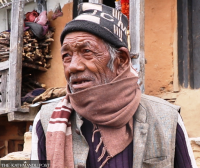National
Human rights commission urges transport operators not to halt essential services
The rights body warns that halting public transport infringes on citizens’ right to mobility and calls on all parties to seek resolution through talks.
Post Report
The National Human Rights Commission (NHRC) has expressed serious concern over the nationwide disruption of public transport following protests by transportation operators against Gandaki province’s ride-sharing regulations.
Issuing a press statement on Monday, the NHRC said that the shutdown of essential services such as public transport had severely affected thousands of people, including the elderly, patients seeking medical care, students, jobholders, and examinees of the Teachers Service Commission.
“While peaceful protest is a fundamental right in a democracy, any activity to seek one’s right must not infringe on the rights of others,” the commission said. “Disrupting essential services like public transportation directly impacts citizens’ ability to enjoy their basic human rights and causes hardships to ordinary people.”
The NHRC noted that it had been monitoring reports published in the media and gathering information from concerned stakeholders. It confirmed that the shutdown had hampered the movement of citizens not only in Gandaki province, where the protest began on May 30, but also in the Kathmandu Valley and other parts of the country.
On Sunday and Monday, transport strikes led by public vehicle operators left roads empty in cities like Pokhara, Bharatpur, Janakpur, Bhairahawa, and Dhangadhi, with many travellers stranded without options. Halt of vehicular movement in the major towns crippled regular activities in adjoining districts as well.
In Lamjung, even vehicles carrying tourists were reportedly blocked, while in Kathmandu, private cars and motorcycles and a limited number of taxis were seen plying the roads.
The rights body reminded the protesting transport operators of their responsibility to ensure that their actions do not deprive others of their rights. “Rather than resorting to disruptive protests, the parties involved should sit at the negotiating table and seek a resolution through constructive ways,” it said.
The NHRC urged transport operators to avoid halting essential services and to adopt alternative protest methods that do not obstruct public mobility. It also called on the government to ensure that public transportation services resume, and to consult stakeholders while drafting laws that impact livelihoods.
“Sensitive to the impact on public rights, we appeal to all concerned, including the government of Nepal, to facilitate an environment where citizens can move freely and their fundamental rights are protected,” said NHRC spokesperson Tikaram Pokharel.




 12.12°C Kathmandu
12.12°C Kathmandu












